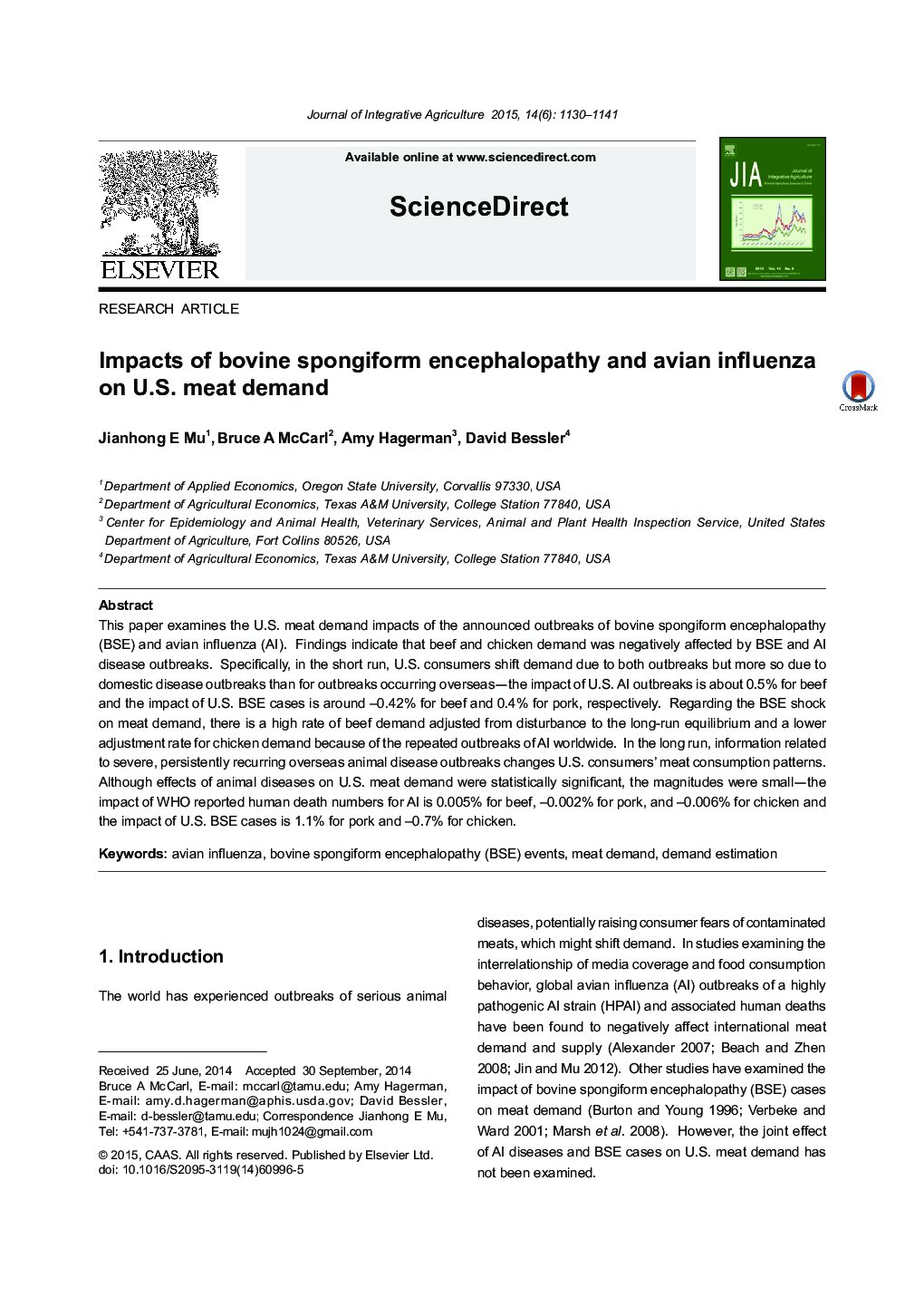| Article ID | Journal | Published Year | Pages | File Type |
|---|---|---|---|---|
| 4494169 | Journal of Integrative Agriculture | 2015 | 12 Pages |
This paper examines the U.S. meat demand impacts of the announced outbreaks of bovine spongiform encephalopathy (BSE) and avian influenza (AI). Findings indicate that beef and chicken demand was negatively affected by BSE and AI disease outbreaks. Specifically, in the short run, U.S. consumers shift demand due to both outbreaks but more so due to domestic disease outbreaks than for outbreaks occurring overseas—the impact of U.S. AI outbreaks is about 0.5% for beef and the impact of U.S. BSE cases is around −0.42% for beef and 0.4% for pork, respectively. Regarding the BSE shock on meat demand, there is a high rate of beef demand adjusted from disturbance to the long-run equilibrium and a lower adjustment rate for chicken demand because of the repeated outbreaks of AI worldwide. In the long run, information related to severe, persistently recurring overseas animal disease outbreaks changes U.S. consumers' meat consumption patterns. Although effects of animal diseases on U.S. meat demand were statistically significant, the magnitudes were small—the impact of WHO reported human death numbers for AI is 0.005% for beef, −0.002% for pork, and −0.006% for chicken and the impact of U.S. BSE cases is 1.1% for pork and −0.7% for chicken.
